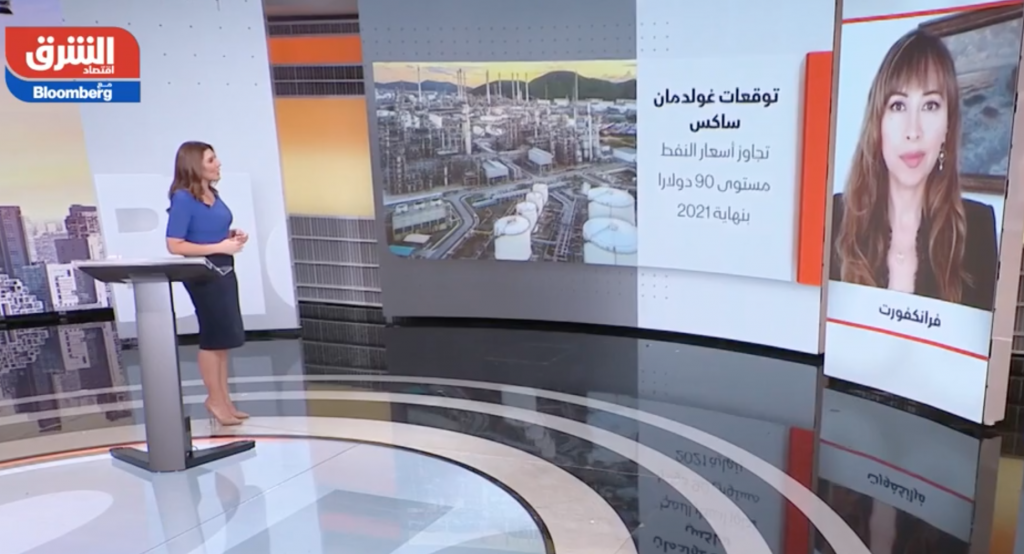In this interview with Maya Hojeij from Asharq Business Bloomberg, Dr Carole Nakhle, CEO of Crystol Energy, discussed the impact of oil prices on the GCC economies and government budgets.
Dr Nakhle stated that the GCC countries still heavily rely on hydrocarbons and are therefore significantly exposed to volatility in international markets: when oil prices are high, the GCC economies flourish and public spending increases, but when prices crash, economies suffer equally. This cyclical relationship does not translate into long term healthy and sustainable economic growth for the region.
Dr Nakhle added that the recent rise in oil prices will positively impact government finances in the short term. In the longer term, prices have to sustain these levels to support the government budget. The IMF estimated that the annual fiscal breakeven of Saudi Arabia is at 82 $/bbl, meaning that the oil price has to average around these price levels for the whole year for Saudi Arabia to have a balanced fiscal budget. In addition to the reliance on oil revenues, the GCC countries heavily rely on the imports of basic goods which are currently experiencing notable inflationary pressure. And despite discussing the need for economic diversification at least since the 1970s, the process remains work in progress.
She also warned of several risks that can exhibit negative pressure on oil prices. First, inflation, affecting the whole world, can derail the post-pandemic economic recovery. Second, Covid is still there and can still curtail demand. Both factors combined can affect the global economic recovery, which in turn it can affect oil demand, and that’s not good news for oil exporters.
Even under current prices, it will take several GCC economies at least until 2023 to reach pre-Covid GDP per capita level. Then, the core question becomes at what rate will the economies grow from that point onwards.
Related Comments
“Impact of Covid-19 on GCC and Global Oil and Gas Markets“, Christof Rühl, Aug 2020
“Saudi Arabia’s diversification plans could be derailed by the oil price crash”, Christof Rühl, May 2020
“Saudi Arabia’s economic transformation programme“, Rühl, Nov 2018









